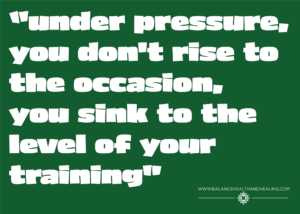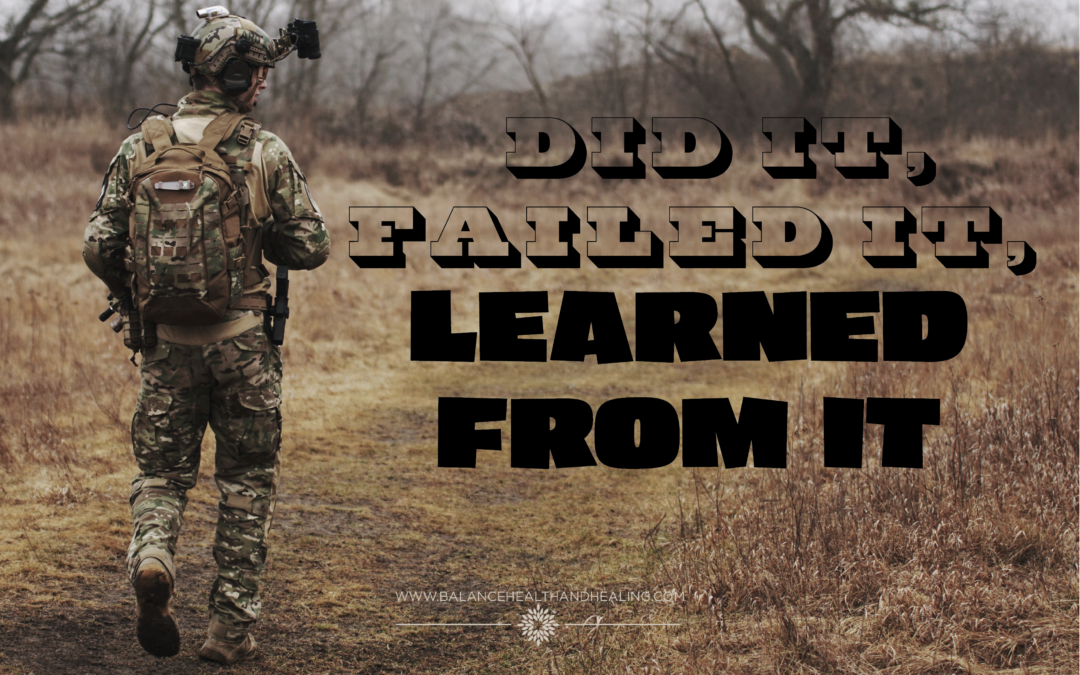Hi again!
Recently I joined my school’s Air Force ROTC program. For those of you who don’t know, the ROTC is a program that allows University students to get their degree while training to eventually commission as an officer in the military. I’ve always thought about military service and looked up to those who have served or are currently serving. Now, I’ve finally decided to take a leap of faith and try it for myself.
The overall experience has been fun, difficult, exciting, daunting, and sleep-depriving (almost daily early morning workouts tend to do that). I’m only about four weeks into the program as I write this, and there have already been many lessons learned. I could write a few blog posts on these experiences, but I’ll just focus on one for now.
Sent It
My experience came just recently, about three weeks into the program. As part of the program, cadets (as we’re called) take additional classes that are specifically focused on preparing us as leaders. For one of these classes, I was assigned a quote briefing. I was to simply memorize an assigned quote from a military leader, recite it in front of the class, and then discuss the quote’s background and describe how it is applicable to us cadets.
“That shouldn’t be too bad,” I thought to myself. I had a fair amount of experience speaking in front of people between church service, school, and coaching, so I didn’t put too much worry into the assignment.
Two or so weeks after receiving the assignment, it was my turn to present. The night before I started memorizing the quote, luckily it was pretty short, and by class the next day I felt like I had it down.
 Somehow, I drew the short straw, and I was the very first person to do my briefing for the semester. We were told the briefing needed to be 2-3 minutes, and as I was about to get up a fellow cadet asked me if I wanted him to time me so I could make sure I was ok on time. Confidently I thanked him but said I would be ok. Then, as a favorite Instagram account of mine would say, “Just send it,”(@jerryoftheday), I strutted up to the front of the class and “sent it.”
Somehow, I drew the short straw, and I was the very first person to do my briefing for the semester. We were told the briefing needed to be 2-3 minutes, and as I was about to get up a fellow cadet asked me if I wanted him to time me so I could make sure I was ok on time. Confidently I thanked him but said I would be ok. Then, as a favorite Instagram account of mine would say, “Just send it,”(@jerryoftheday), I strutted up to the front of the class and “sent it.”
The start was pretty good, I shared who gave the quote originally and their background, and then I launched into the quote. Again, it was pretty good, though I definitely stumbled over my words a bit. Then I finished off by sharing some thoughts on Integrity (which the quote was about).
Feeling slightly annoyed about how the quote went, but otherwise feeling pretty cool about myself, I looked around at the class. As I looked, I might have thought something like, “well now these guys know what a good briefing looks like.” Again, feeling pretty good about myself, I started walking back to my chair. “Hold up a second, stay up there,” the officer teaching us said. “What feedback do you guys have for him?” He asked the class.
Failed It
What ensued was what I’ll call a polite smackdown. I know that’s probably an oxymoron, but it’s accurate.
Out of about 12 people in the class, 8 or 9 raised their hands with feedback on my briefing. Some were about stuff I already knew, like the way I gave the quote, others were about how I started and finished wrong, still others talked about how I’d get quiet, say “um” and look at the floor when I didn’t know what to say.
After a few more comments from my peers I thought my presentation had been sufficiently torn apart, but then the instructor took the lead.
The instructor talked about how I was desperately grasping at straws every time I didn’t know what to say, he talked about how I wasn’t well enough prepared, and to cap it all off, I was 15 seconds short of my time mark (sorry to that cadet who offered to time me, I was stupid).
Feeling well humiliated, I sat back down and decided to never show my face in public again. As the day went on, thoughts about how bad I did ran through my head. Out of all those thoughts, two stick out to me that I’d like to share.
Learned From It
The first is captured well by a quote that was shared with me previously by that same instructor who had given me the feedback. This quote has been credited to an unknown Navy Seal,  but was originally attributed to Archilochus, the Greek poet (these ancient Greeks were full of good stuff). The quote is, “under pressure, you don’t rise to the occasion, you sink to the level of your training”?
but was originally attributed to Archilochus, the Greek poet (these ancient Greeks were full of good stuff). The quote is, “under pressure, you don’t rise to the occasion, you sink to the level of your training”?
This is incredibly true. Going into that briefing I had high hopes and visions for bringing the class to tears with my eloquently worded, beautifully delivered briefing. In reality, I fell to my level of preparation, which was good enough to maybe impress a class full of baboons.
The instructor was right, I didn’t know what I was going to say. I had literally thought to myself earlier that day that, “I’ll just get up and talk about integrity for a couple minutes and it’ll go great.” I really was grasping desperately at straws every time I didn’t know what to say.
So, my first lesson, prepare yourself. Know your stuff. Have pride in being the best at what you do and knowing everything you can. Don’t take on life as a cocky 21-year old who thinks he’ll breeze through everything without trying.
The second thought is to seek criticism. Even when given in nasty, blunt, or tactless ways, there is something for us to learn. The criticism I received was given kindly and without a shred of malice, but even if there was malice, I still gave a crappy presentation, that needed correction.
 Receiving criticism gracefully can be powerful. I know without a doubt that next time my number is called to give a briefing, I will not only be prepared, I will know the material well enough to speak about it for hours. I don’t know if I’ll bring anyone to tears, but you better be sure I’ll know the material.
Receiving criticism gracefully can be powerful. I know without a doubt that next time my number is called to give a briefing, I will not only be prepared, I will know the material well enough to speak about it for hours. I don’t know if I’ll bring anyone to tears, but you better be sure I’ll know the material.
Too often we shirk criticism and feedback. Many blog posts could be written about this alone, but a paragraph or two will have to do for now.
It takes a lot of bravery to go to people and ask them what’s wrong with you. It takes even more courage and humility to apply their suggestions. But when we do, good things happen. Other people see us in ways we can’t. They can help us look past the defense mechanism we have of hiding our flaws. This being said, I’d recommend asking multiple people before making any drastic life decisions. Some people aren’t looking out for our best interest. But, if multiple people are telling you similar things, then maybe you need to make some changes.
I hope you can get something from my experience, while it definitely wasn’t an enjoyable experience, I’m grateful for the lessons I’m learning from it. Self-improvement is usually painful, but when we are humble, and prepare well, our lives change for the better.

